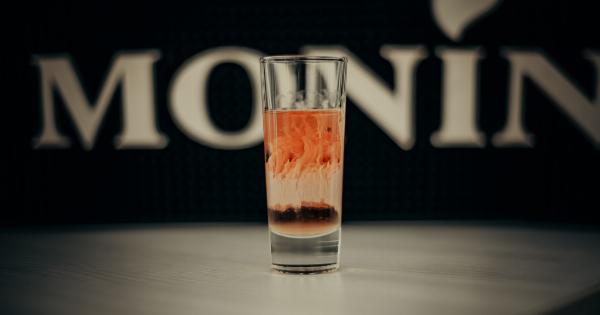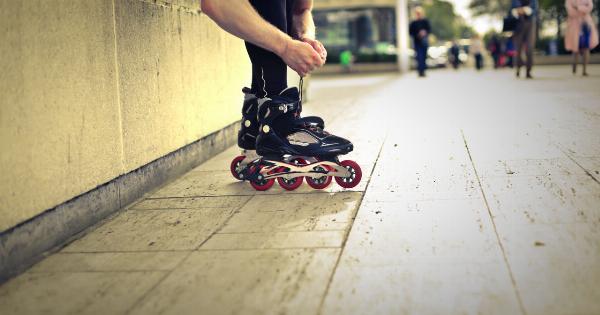Dehydration occurs when your body doesn’t have enough fluids to carry out its normal functions. It happens when you lose more fluids than you consume, causing an imbalance in your body’s electrolyte levels.
Severe dehydration can be life-threatening and requires immediate medical attention. Recognizing the signs and symptoms of dehydration is crucial for taking appropriate measures to prevent further complications.
Common Causes of Dehydration
Dehydration can be caused by various factors, including:.
- Inadequate fluid intake: Not drinking enough water or consuming dehydrating beverages like alcohol or caffeine.
- Excessive sweating: Engaging in intense physical activities, exercising in hot weather, or having a fever can cause excessive sweating.
- Vomiting and diarrhea: These conditions can lead to rapid fluid loss.
- Increased urination: Certain medications, such as diuretics, or medical conditions like diabetes, can increase urine production and result in dehydration.
Signs and Symptoms
Recognizing the signs and symptoms of dehydration can help you take prompt action to prevent further complications. Here are some common indicators:.
1. Thirst
Feeling thirsty is one of the most obvious signs that your body needs more fluids. However, by the time you start feeling thirsty, you may already be experiencing mild dehydration.
It is essential to drink water regularly, even if you don’t feel thirsty.
2. Dry Mouth and Lips
When you are dehydrated, your mouth and lips may feel dry or sticky due to inadequate saliva production. This can make swallowing and speaking uncomfortable.
3. Dark-Colored Urine
Monitoring your urine color can provide important clues about your hydration status. Dark yellow or amber-colored urine indicates dehydration. In contrast, drinking an adequate amount of water will result in light or clear urine.
4. Fatigue and Weakness
Dehydration can lead to decreased blood volume and reduced oxygen flow to the muscles and organs. This can cause overall fatigue and weakness. If you feel excessively tired, even after getting enough sleep, dehydration could be a contributing factor.
5. Dizziness and Lightheadedness
Inadequate fluid intake can cause blood pressure to drop, leading to dizziness or feeling lightheaded. If you experience these symptoms, it is important to sit or lie down to prevent potential accidents or falls.
6. Headaches
Dehydration can trigger headaches or migraines in some individuals. If you frequently experience unexplained headaches, it may be beneficial to evaluate your hydration habits.
7. Dry Skin
When your body lacks moisture, your skin can become dry and less elastic. It may lose its natural glow and appear dull or flushed. Proper hydration plays a vital role in maintaining healthy skin.
8. Muscle Cramps
Dehydration can disrupt the electrolyte balance in your body, leading to muscle cramps or spasms. If you frequently experience involuntary muscle contractions, increasing your fluid intake may help alleviate these symptoms.
9. Rapid Heartbeat
In some cases, dehydration can cause a rapid heartbeat or heart palpitations. This occurs because the body attempts to compensate for the decrease in blood volume by increasing heart rate.
If you notice persistent changes in your heart rate, seek medical attention.
10. Sunken Eyes
Severe dehydration can cause fluid loss from certain areas of the body, such as the eyes. Sunken eyes or noticeable dark circles can be signs of dehydration, especially if accompanied by other symptoms.
Preventing Dehydration
Preventing dehydration is essential for maintaining overall health and well-being. Here are some tips to help you stay hydrated:.
1. Drink Plenty of Water
Aim to drink at least 8 cups (64 ounces) of water each day, or more if you engage in intense physical activities or live in a hot climate.
2. Limit Caffeine and Alcohol Intake
Caffeine and alcohol can increase fluid loss through urine, leading to dehydration. Moderate your consumption of these drinks and ensure you balance them with water.
3. Monitor Your Urine Color
Keep track of your urine color to gauge your hydration status. Light or clear urine indicates proper hydration, while dark yellow or amber-colored urine suggests you need to drink more water.
4. Eat Water-Rich Foods
Include fruits and vegetables with high water content in your diet. Watermelon, cucumbers, strawberries, and spinach are excellent choices to help boost your hydration levels.
5. Be Mindful During Physical Activity
If you are exercising or participating in physically demanding activities, drink water before, during, and after to replenish lost fluids.
6. Dress Appropriately for the Weather
When it’s hot outside, wear lightweight and breathable clothing to minimize sweating and fluid loss caused by evaporation.
7. Consider Oral Rehydration Solutions
If you are experiencing vomiting or diarrhea, oral rehydration solutions can help replenish lost fluids and electrolytes. These solutions are readily available at pharmacies or can be prepared at home following medical advice.
When to Seek Medical Attention
If symptoms of dehydration persist despite your efforts to rehydrate, or if you experience severe symptoms such as rapid breathing, confusion, or fainting, seek immediate medical attention.
Severe dehydration may require intravenous fluids to restore your body’s fluid balance.
Conclusion
Recognizing and understanding the signs and symptoms of dehydration is crucial for maintaining your overall health and well-being.
By taking the necessary preventive measures and staying mindful of your hydration status, you can help ensure your body functions optimally and avoid the complications associated with dehydration.































